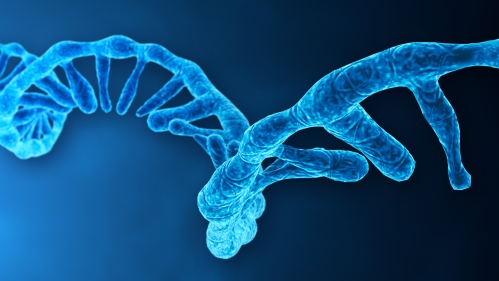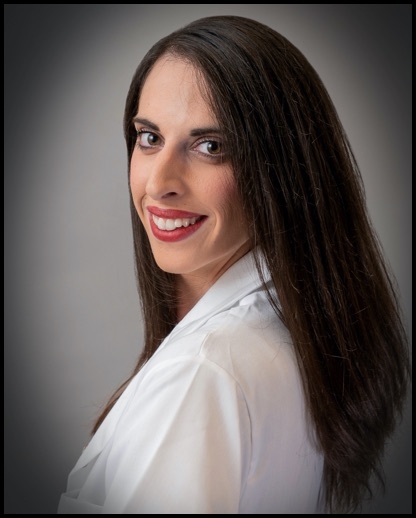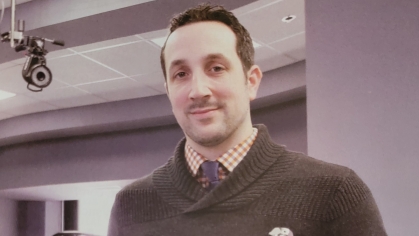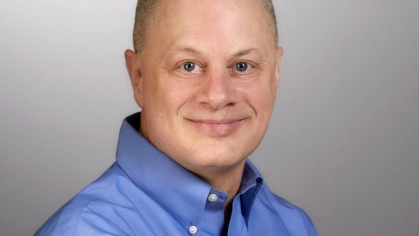Biomedical Engineering Alumna is a Member of Nobel-winning mRNA Research Lab

Meeting people who were not like me was probably the most important thing that happened for me in college. My whole life and the way I see the world changed because of meeting other people.
–Jilian Melamed

After receiving her BS in biomedical engineering from the School of Engineering, Jilian Melamed went on to earn her PhD from the University of Delaware in 2018. As an NIH F32 postdoctoral fellow at Carnegie Mellon University, she developed a passion for mRNA therapeutics. She is a member of the Weissman Lab at the University of Pennsylvania Perelman School of Medicine, where her research focuses on targeted lipid nanoparticles (LNPs) for messenger RNA, or mRNA, delivery. The Weissman lab is lead by Drew Weissman who was awarded the Nobel Prize in Physiology or Medicine in 2023 along with Katalin Karikó.
What was your trajectory into researching mRNA?
When I came to Rutgers, I was interested in studying biomedical engineering. I had been a gymnast all my life and thought I wanted to study biomechanics and design prosthetics. Then in my senior year, I did some research with a materials science and engineering professor on gold nanorods able to heat and destroy cancer cells.
I decided to pursue cancer nanomedicine, and that’s how I ended up at Delaware. I studied genes that promote drug resistance in the aggressive brain cancer, glioblastoma. My PhD research developed gold nanoparticles to deliver siRNA to combat drug resistance for glioblastoma. This worked in cell culture models – there’s a lot of potential and more research needs to be done.
What inspired your passion for mRNA therapeutics?
At Carnegie Mellon, I focused on developing new ways to deliver mRNA to the pancreas. Messenger RNA had been delivered to the liver and spleen, but no one had hit the pancreas before.
This was two years before the mRNA field exploded with mRNA Covid vaccines that could hit immune cells, and Drew Weissman’s Lab at Penn – which had a couple of collaborative projects with Carnegie – was at the forefront of this technology.
I had a strong background in nanomedicine and wanted to learn more about how I could apply my engineering background to mRNA therapeutics. I’ve been in Philly with the Weissman Lab since January 2022.
What excites you the most about this field?
I like mRNA therapeutics because we can design an mRNA to encode for any protein we want. The sky’s the limit. Basically, we’re only limited by our imaginations and what we can think to do with them. This was the first thing I realized when I started learning about mRNA therapeutics.
What is the focus of your Weissman Lab research?
My research focus is on developing targeted lipid nanoparticles, or LNP, therapeutics for autoimmune diseases, such as multiple sclerosis, celiac disease, and type 1 diabetes. In autoimmune diseases, the body’s attacks on its own self and tissues can be severe. There are no cures, only treatments such as insulin for diabetics or gluten-free diets for those with celiac disease.
It can be hard for people to adhere to the treatments for auto-immune diseases, so we’re trying to develop therapies to tolerize the immune system to whatever cells it’s attacking. In type 1 diabetes, for instance, insulin is a potent self-antigen that the body is attacking. We want to develop a therapy that tells the body to leave insulin alone.
Ideally, we can develop a therapeutic that would be delivered by mRNA and that would be one-and-done, with a lasting effect, although it would likely be periodically readministered over time.
Is this already being used?
The Covid vaccines which use mRNA were approved, and other vaccines are possible, but no auto-immune diseases are currently being treated with mRNA. We hope to change this.
What do you most value about your Rutgers education?
The diversity of the student body. Meeting people who were not like me was probably the most important thing that happened for me in college. My whole life and the way I see the world changed because of meeting other people. You can’t know how important this is until you’ve experienced it yourself – and then you’re never the same.
Did you have any internships while at Rutgers?
I worked at Chromocell Corporation for two years. A lot of the pharmaceutical and biotechnology companies in the area have systems in place where portions of some departments are made up of undergrad interns. The cell culture department, where I worked at Chromocell, was all RU interns.
Were you involved in any extracurriculars?
I played violin with the Rutgers University symphonia for about half the time I was there. I still play violin and have started playing with the Penn Medicine symphony orchestra.
Where would you go if you could go on vacation tomorrow?
Someplace in southeast Asia, like Thailand, which is on our list.

